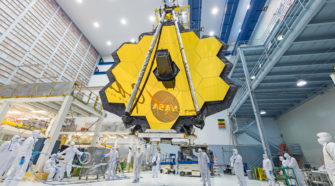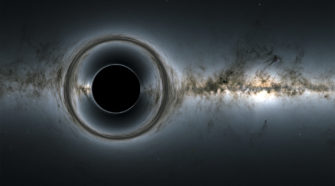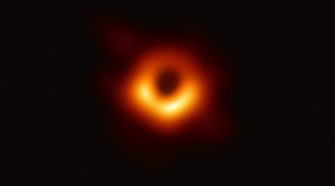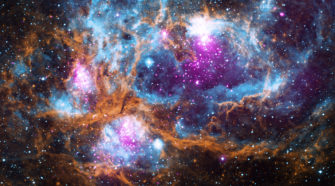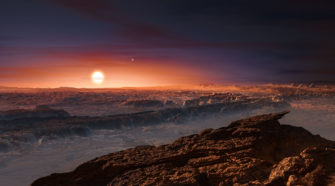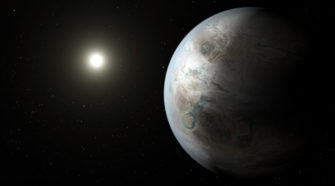Universe
James Webb Space Telescope: How to send a giant telescope to space – and why
The James Webb Space Telescope is scheduled to head to space on Dec. 22, 2021. With it, astronomers hope to find the first galaxies to form in the universe, will search for Earthlike atmospheres around other planets, and accomplish many other scientific goals. I am an astronomer and the principal investigator for the Near Infrared …
Three reasons why black holes are the scariest things in the Universe
Halloween is a time to be haunted by ghosts, goblins and ghouls, but nothing in the Universe is scarier than a black hole. Black holes – regions in space where gravity is so strong that nothing can escape – are a hot topic in the news these days. Half of the 2020 Nobel Prize in …
See the first-ever image of a black hole
Until now, everything we’ve known about black holes — celestial objects with intense gravitation — has been from theories and illustrations. Now, thanks to an international collaboration called the Event Horizon Telescope (EHT), a cosmic portrait of a supermassive black hole exists. At the center of the galaxy Messier 87 (M87) in the Virgo constellation, the …
NGC 6357: A cosmic ‘winter’ wonderland
Although there are no seasons in space, this cosmic vista invokes thoughts of a frosty winter landscape. It is, in fact, a region called NGC 6357 where radiation from hot, young stars is energizing the cooler gas in the cloud that surrounds them. This composite image contains X-ray data from NASA’s Chandra X-ray Observatory and …
Nearest star has planet in habitable zone
Earth-mass world spotted in orbit around Proxima Centauri Astronomers using ESO telescopes and other facilities have found clear evidence of a planet orbiting the closest star to Earth, Proxima Centauri. The long-sought world, designated Proxima b, orbits its cool red parent star every 11 days and has a temperature suitable for liquid water to exist …
Kepler has found Earth’s older, larger cousin
Some of the very fundamental questions about our existence – why we are here, what is out there, if we will ever find another planet similar enough to ours to live on – have come another step closer to being solved, today. The latest exciting Kepler Space Telescope planet-hunting discovery was announced by NASA this …

